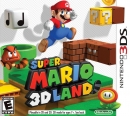Here's some interesting reading on the Co-Development stuff from actual gaming studios that do it.
The world of gaming is huge, and it gets bigger every day. And Co-development is quickly becoming the answer to that growth.
With the growth, there are great expectations from players for a satisfying and fulfilling gaming journey. These expectations only grow alongside the world of gaming as huge studios release sprawling experiences that can fill hundreds of hours. And if not massive games, other developers deliver dense, polished, and entertaining ones that challenge players in any number of ways.
With all of this expansion and growth, it’s becoming more likely that any AAA game you’ve picked up in the past five or more years had more than a single studio at work. Co-development is becoming a mainstay in the game development pipeline.
Co-development is the collaboration and cooperation between the core studio creating the game and one or more other assisting companies. These companies could cover any aspect of the development in any level of depth.
Unlike outsourcing, which is the offloading of a project entirely to a third party, co-development is a meeting of the minds. It’s the combined contribution of several studios delivering a tremendous final product.
The strength of co-development is buried in its nature. As mentioned, it’s not like outsourcing. There’s no handoff of projects and a delivery in the time after. Co-development is where creativity and innovation from two sides meet in the middle. The core development team is expanded with the teams they bring on for the co-development project. And from our experience, the real benefit is in a direct stream of communication between all involved. Knowing your teams is integral in the process. Game development is a hugely complicated process and any bumps in communication or collaboration can spill over into a potential disaster.
What is Co-Development and Why Should You Care? – Ringtail Studios
We wanted to talk a bit more about exactly what it is we do at Studio Gobo and what it’s like to work at a AAA co-development studio. Often referred to as “co-dev”, co-development is collaborative cooperation to develop an idea or project. When a project, feature or anything is worked on by multiple parties in collaboration with each other, that’s co-development. As with the movie industry, much of a production is distributed among many different and varied specialist teams. As AAA games continue to increase in size and scope, a distributed development model has been emerging. This allows a Lead Team to take advantage of different time zones and the wealth of talent pools in different geographical locations.
Usually there will be one studio that owns a project, and they’ll hire a co-development studio to work with them if they need or want to put more people onto that project.
Sometimes it’s big companies who want to expand the project they’re working on, sometimes it’s smaller companies with ideas but not enough technical experience to be able to implement their ideas by themselves. If a studio owns their own work, they might not want to simply contract out a feature of that work, but instead keep being very involved on a day-to-day level and hire a co-development studio to quickly integrate into their teams. It’s like immediately getting a full or partial team of people to fill in the gaps. If a project ends up being expanded or over-estimated in terms of how many people or how much time it will take, that’s when it’s useful to work with a co-development studio.
There are a few types of co-development studio. A co-development studio could offer a broad range of disciplines or an emphasis on one or two. Some co-development companies offer one service, such as sound design or programming, for example; others can adapt to whatever it is that the hiring studio is looking for.
With co-development there’s much more of a focus on communication. It’s not simply a case of being assigned a task and completing it – when we work on a project, we integrate into the teams. We are still tied to a contract, but we have a lot of control over our production planning and scope management.
What is Co-Development? | Studio Gobo
They want passionate and diversely talented teams that can drive a project as hard as any internal development team and become an integral part of the organization and projects.
This is especially true for parallel development projects where it is not just about making art assets, weapons, vehicles, and buildings, but about true co-development, where creative input and strategic decision-making is a collaborative process between games companies and their external developers.
These companies now make it clear from the beginning that they aren’t looking for a flexible talent pool, but an extension of their own development team — namely, a partner just as dedicated as they are to making the best game possible. Trust is a must as the depth of the relationship reaches new levels, and with access to proprietary engines and pipelines deeply integrated between the two parties.
At the end of the day, AAA studios who want to make their games bigger while increasing their ROI will rely on major partners for their expertise in specialized game development services as well as flexible development work.
Expert Talks: A Producer’s View on How Effective Co-Development Makes for Better Games - Virtuos
Last edited by Ryuu96 - on 04 November 2022






























































